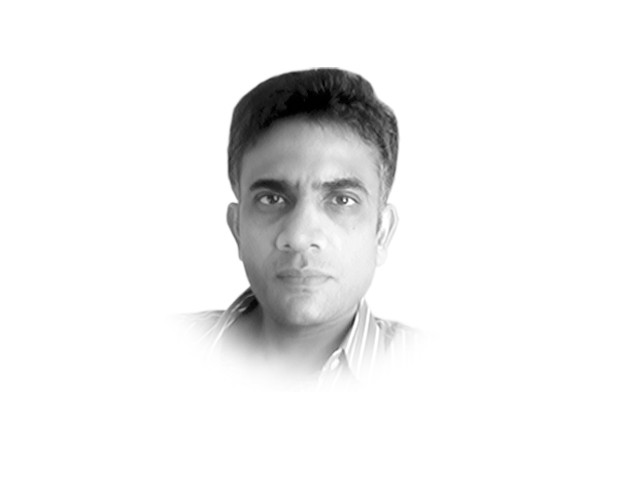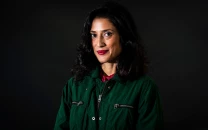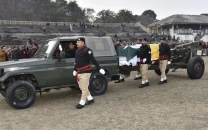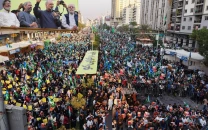The mystery behind access to Kasab
Why is the Indian govt not allowing access to him? I have information that the reason could be his mental condition.

Khalid Qureshi, head of the FIA’s special investigation group, will accompany two government lawyers prosecuting members of the Lashkar-e-Taiba (LeT). The prosecutors are Muhammad Azhar Chaudhary and Chaudhry Zulfikar. Five lawyers representing the LeT members accused of planning the 26/11 attacks will also come.
The Pakistanis will meet and record the statements of police inspector Ramesh Mahale and magistrate R V Sawant-Waghul. Mahale was the officer who investigated the attack, and Sawant-Waghul was the judge who recorded the confessional statement of Ajmal Kasab. The Pakistanis will also talk to the doctors who treated Kasab after his capture on Marine Drive by sub-inspector Tukaram Omble who was shot, but held on to Kasab till he died.
The Pakistani team will not, however, be meeting Kasab. When Rehman Malik said last week that the team would seek to meet Kasab, the Indian government said this would not happen. India said this was not part of the written understanding reached with Pakistan. However, reports in newspapers here quoted unnamed Indian officials as giving two reasons for the refusal. First was the concern that Kasab will retract his confessional statement. The second was that Pakistan is in turn refusing India access to voice samples of the LeT’s Zakiur Rehman Lakhvi. Pakistan says that its law only allows fingerprints as evidence of individual identity, not voice samples. The samples are important because the voice of the man who guided the attackers through their carnage is available in the evidence.
Perhaps these are really the reasons, it’s difficult to say.
The LeT’s lawyers say Kasab’s statement is inadmissible in Pakistani courts. So it’s not clear what would be achieved even if they got Kasab to retract his confession. Retracting confessions during trials used to be common in India (it is the reason why a magistrate records all confessions). However, the conviction of Kasab is based on evidence that is visual, aural, circumstantial and physical. His statement by itself is unimportant.
Why then is the Indian government not allowing access to him?
I have information that the reason could be Kasab’s mental condition.
A friend of mine visited Arthur Road jail in Mumbai a few weeks ago. This person was shown around the jail and also observed Kasab. Not physically, because he is being held in isolation, but on closed circuit cameras. Kasab, India’s most valuable prisoner, is monitored through the day to ensure he doesn’t harm himself. He is kept in solitary confinement in Arthur Road’s Barrack No 12. The daily report of his food intake shows that he’s healthy and eating well. He also has access to books in Urdu, which he was reported as reading last year. He declined to keep a fast last Ramazan and did not get the special food that rozaydars are given.
When this person saw Kasab he was swinging his head around, like a headbanger at a rock concert. There was no music in his cell, of course, he was moving to something in his mind. He sat down at one point but kept throwing his head violently about. This continued for 15 minutes or so and the person was in no doubt that the man on the screen was disturbed. The other thing that the visitor observed was that the jail officials and officers who were present were not surprised by what was unfolding before them. This suggests that Kasab often behaved in this fashion.
Could it be that the man photographed by Sebastian D’Souza so clinically picking out and shooting people dead has lost his mind? It would not be surprising if this were so. Kasab was only 21 when he took part in that savage attack. He has since lost his friends, all contact with his family and was confronted in court with the vivid details of his actions. His government in Pakistan first disowned Kasab and in November, Rehman Malik said he ought to be hanged immediately.
Tomorrow, Monday January 30, just before the Pakistanis arrive, India’s Supreme Court will begin hearing the appeal against Kasab’s death penalty.
It isn’t clear whether insanity after conviction is a reason for someone to be spared the noose. But the terrible actions of Kasab and his nine companions may well have already claimed their final victim.
Published in The Express Tribune, January 29th, 2012.



















COMMENTS
Comments are moderated and generally will be posted if they are on-topic and not abusive.
For more information, please see our Comments FAQ